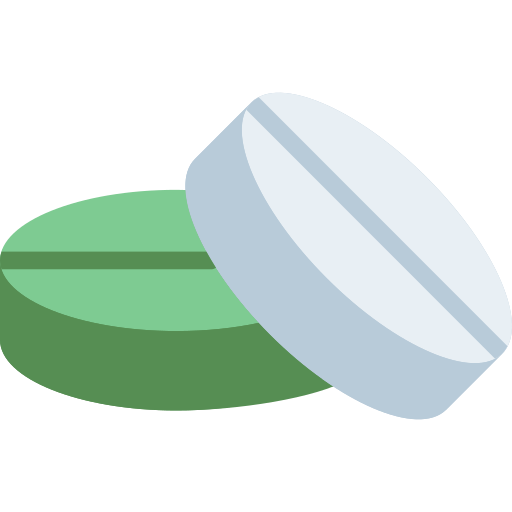
Amlodipine Besilate + Telmisartan
5 mg+40 mg
Pharmasia Limited
Product Details
Description
This is a fixed dose combination of Telmisartan and Amiodipine. Telmisartan, a non-peptide angiotensin receptor blocker (ARB), is specific angiotensin II antagonist acting on the AT1 subtype. Angiotensin II is the principal pressor agent of the renin-angiotensin system, with effects that include vasoconstriction, stimulation of synthesis and release of aldosterone, cardiac stimulation, and renal reabsorption of sodium, which leads to an increase in blood pressure (hypertension). Telmisartan blocks the vasoconstrictor and aldosterone-secreting effects of angiotensin II by selectively blocking the binding of angiotensin II to the AT1 receptor in many tissues, such as vascular smooth muscle and the adrenal gland. Therefore, Telmisartan dilates blood vessels and reduces blood pressure without affecting pulse rate. Telmisartan has much greater affinity (>3,000 fold) for the AT1 receptor than for the AT2 receptor. It does not bind or block other hormone receptors or ion channels known to be important in cardiovascular regulation. Amiodipine, a dihydropyridine calcium-channel blocker (CCB), inhibits the transmembrane influx of calcium ion into vascular smooth muscle and cardiac muscle. Amiodipine is a peripheral arterial vasodilator that acts directly on vascular smooth muscle to cause a reduction in peripheral vascular resistance and reduction in blood pressure.
Known hypersensitivity to this product or any of its components. Pregnancy & lactation. Biliary obstructive disorders, severe hepatic impairment, hypotension, cardiogenic shock, left ventricle outflow tract obstruction.
Dizziness, peripheral edema, migraine, headache, paraesthesia, vertigo, bradycardia, palpitations, hypotension, cough, abdominal pain, diarrhea, nausea, pruritus, myalgia, spasm, erectile dysfunction,chest pain, fatigue, edema etc.
Pregnancy Categories C (first trimester) and D (second and third trimesters). It is not known whether telmisartan and amiodipine is excreted in human milk. Because of the potential for adverse effects on the nursing infant, discontinue nursing or discontinue the drug after taking into account the importance of the drug to the mother.
Avoid fetal or neonatal exposure Hypotension: Correct any volume or salt depletion before initiating therapy. Observe for signs and symptoms of hypotension Titrate slowly in patients with hepatic or severe renal impairment Heart failure: Monitor for worsening Avoid concomitant use of an ACE inhibitor and angiotensin receptor blocker Myocardial infarction: Uncommonly, initiating a CCB in patients with severe obstructive coronary artery disease may precipitate myocardial infarction or increased angina.
Pediatric use: Safety and effectiveness of Telmisartan & Amiodipine combination in pediatric patients have not been established. Geriatric use: Initial therapy with Telmisartan & Amiodipine combination is not recommended in patients ≥75 years old. Hepatic impairment: Initial therapy with Telmisartan & Amiodipine combination is not recommended in hepatically impaired patients.
Telmisartan: Limited data are available with regard to overdosage in humans. The most likely manifestations of over dosage with telmisartan tablets would be hypotension, dizziness, and tachycardia; bradycardia could occur from parasympathetic (vagal) stimulation. If symptomatic hypotension should occur, supportive treatment should be instituted. Telmisartan is not removed by hemodialysis. Amiodipine: Overdosage might be expected to cause excessive peripheral vasodilation with marked hypotension and possibly reflex tachycardia. If massive overdose occur, active cardiac and respiratory monitoring should be instituted. Frequent bipod pressure measurements are essential. If hypotension occur, cardiovascular support including elevation of the extremities and the judicious administration of fluids should be initiated. If hypotension remains unresponsive to these conservative measures, administration of vasopressors (such as phenylephrine) should be considered with attention to circulating volume and urine output. Amiodipine is not removed by hemodialysis.
Combined antihypertensive preparations
-
Support 24/7
Call us anytime -
100% Safety
Only secure payments